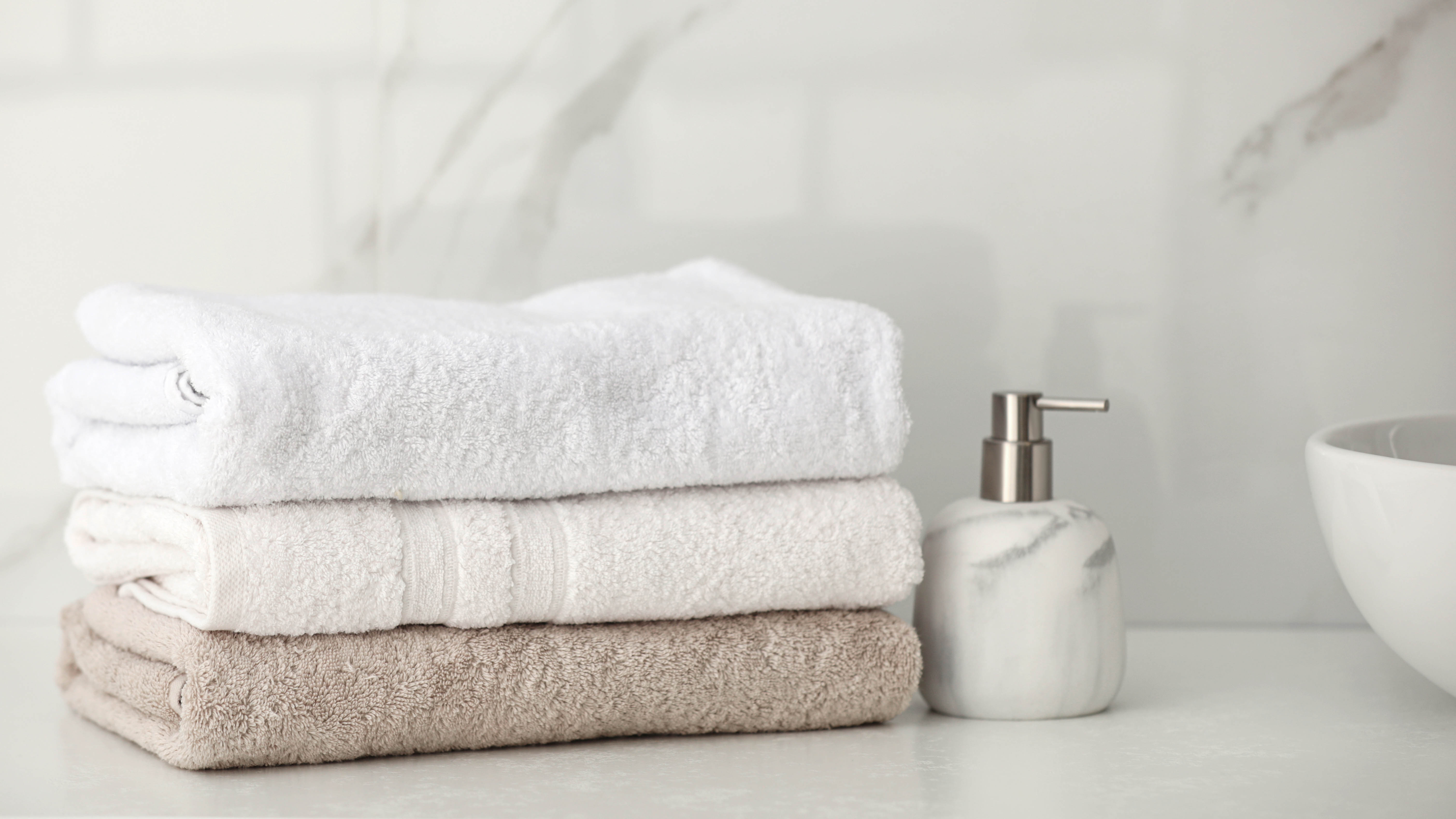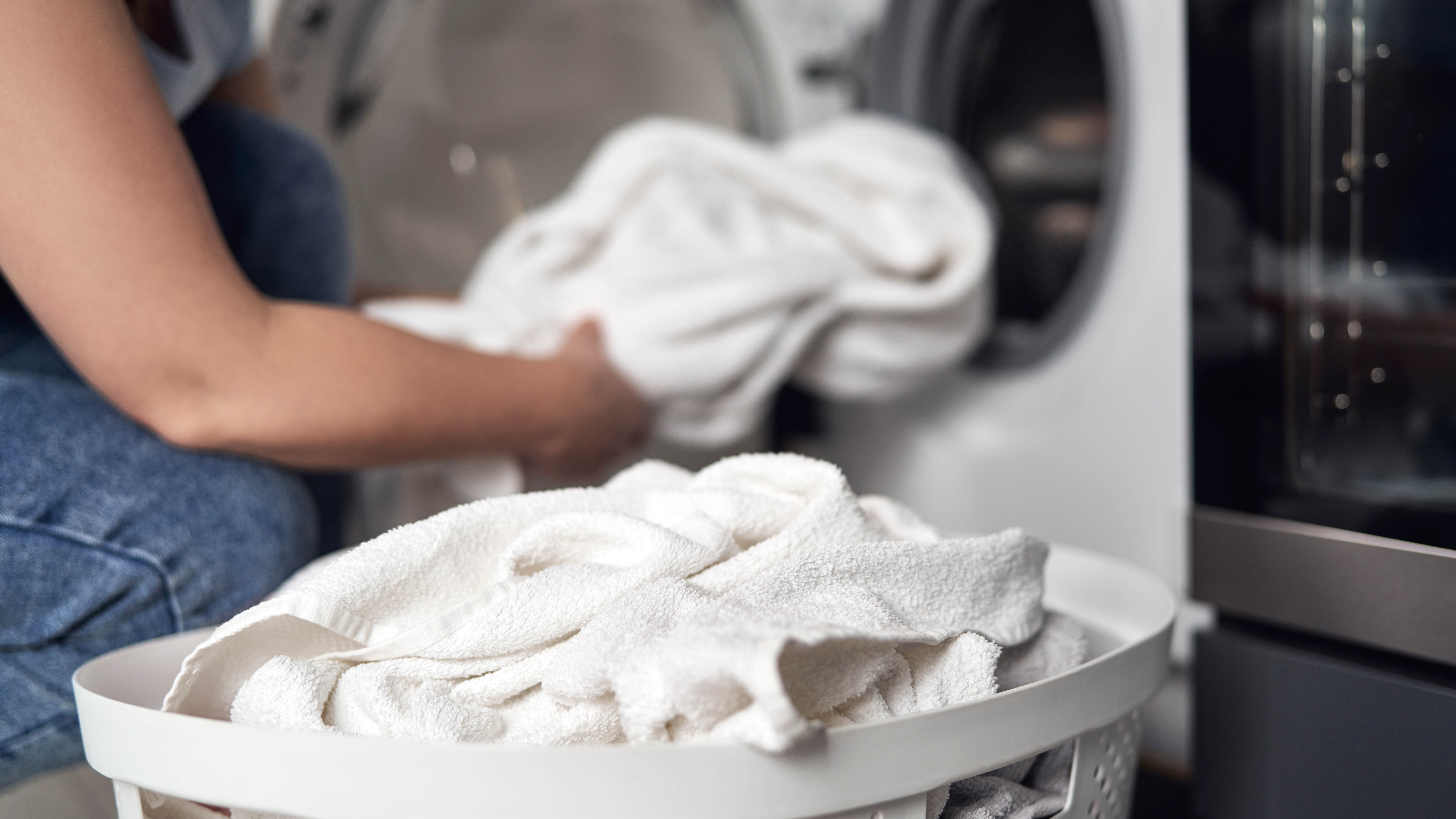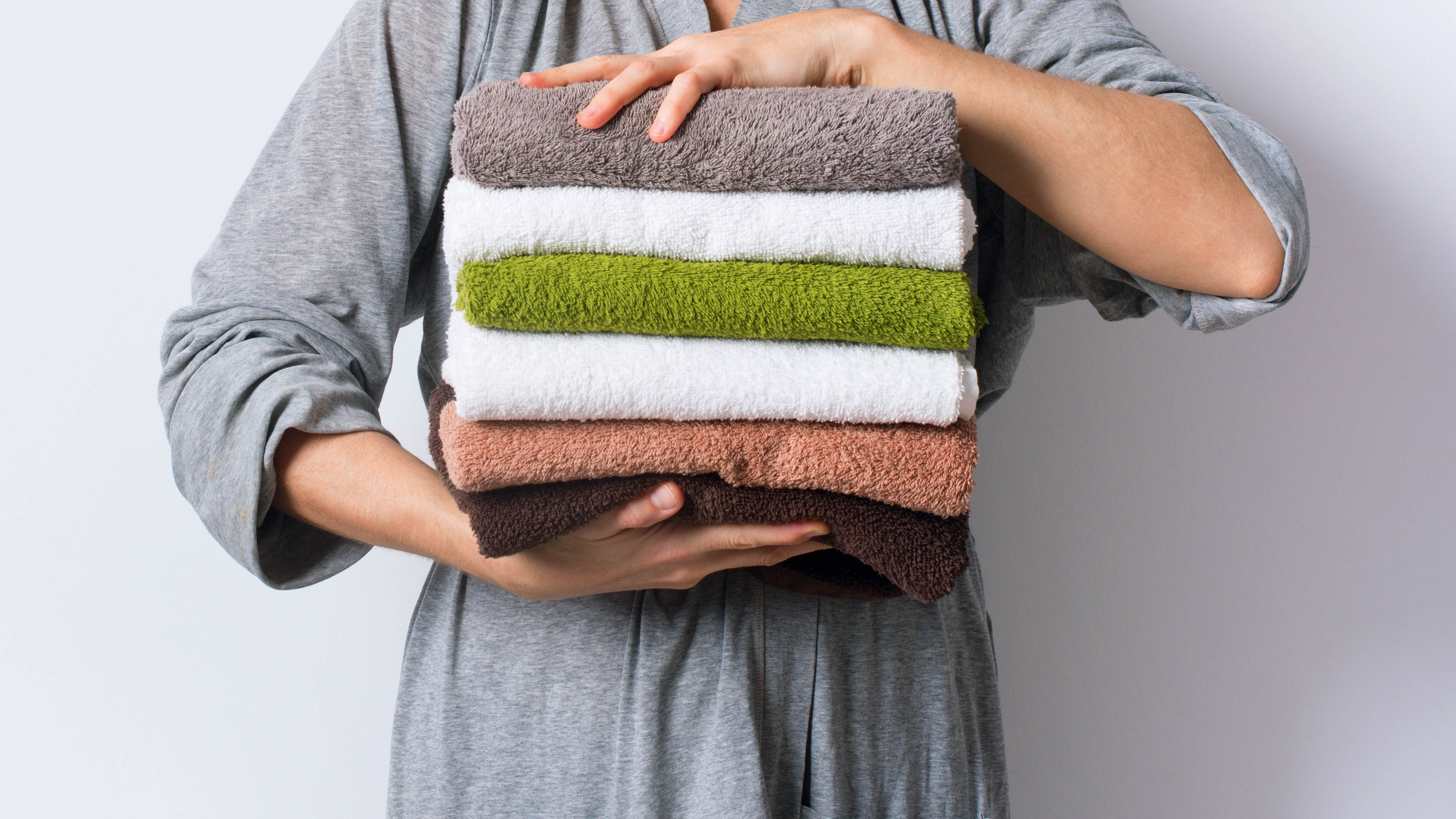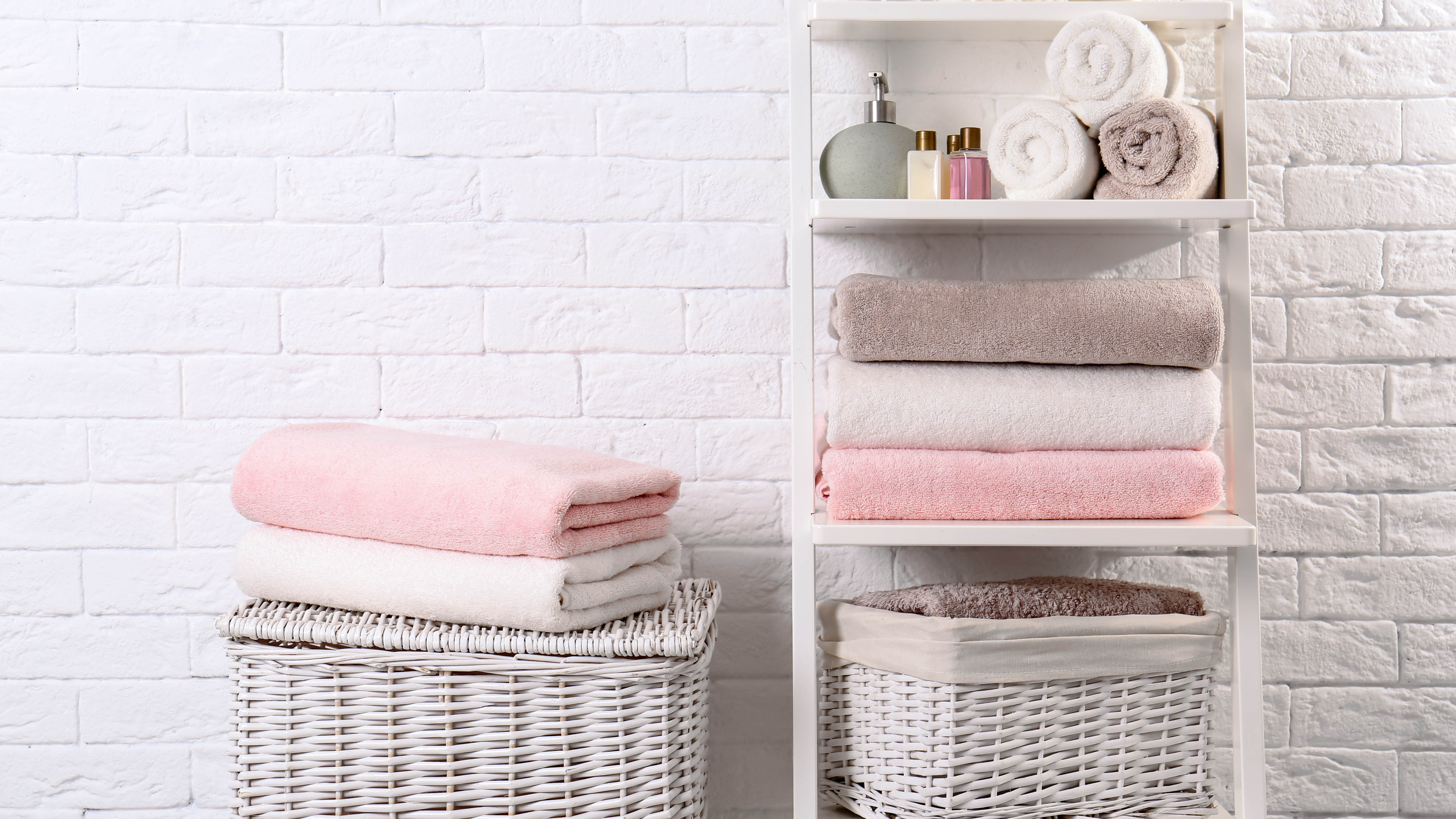
If you've ever stepped out of a shower and into the embrace of a rough, scratchy towel that refuses to absorb the water you're dripping with, you’ll know that towel care isn't just about cleanliness.
The secret to keeping towels soft and absorbent lies not just in how you use them, but more importantly, in how you wash them. Neglecting the proper way of washing can lead to cardboard-like towels that feel like sandpaper when they touch your skin and fail at their primary job of getting you dry. Worse still, it can mean having to replace your towels more often than you’d like, which can prove costly — especially for good-quality options with a decent thread count.
Sure, understanding the right wash cycle and temperature settings is paramount to keeping your towels in tip-top condition, but there’s more to it than that. If you want them to be both soft and clean, there are a few things to note that you might haven’t considered before.
With that in mind, we’ve asked the experts to uncover the biggest “dos and don’ts” of towel care to ensure they’re not only clean but remain as fluffy and absorbent as the day you bought them.
How to wash towels — don't make these mistakes

Neglect hot water
First things first. When it comes to keeping your towels in prime condition, never underestimate the power of hot water. According to cleaning expert Sarah Dempsey at MyJobQuote.co.uk, it's a game-changer for getting rid of germs that make themselves at home in the cosy weave of your towels.
“Hot water is your best bet for killing bacteria that love to lurk in damp towels,” she says.
“Check the care label, but most towels can handle a hot wash for optimal hygiene.”
So before hitting start on that wash cycle, make sure you've cranked up the heat to give those towels the deep clean they deserve. But not too, high as Elliott Gee, laundry product manager at Haier UK & Ireland, advises.
Sign up to get the BEST of Tom's Guide direct to your inbox.
Get instant access to breaking news, the hottest reviews, great deals and helpful tips.
“As far as temperature is concerned, it’s recommended to wash your towels between 40° and 60°C,” he says.
Let towels linger
Leaving towels damp after use is a big no-no. That moist environment will only lead to musty odors, which is the last thing you want to smell getting out of the bath or shower when you’re all nice and clean.
"Damp towels are a breeding ground for mildew. Hang them up to dry completely after each use, or toss them in a dryer on a high heat setting," advises Dempsey.
“Make it a habit to spread them out or hang them up properly after each use.”
Ignore white vinegar and baking soda
You might not think of your kitchen pantry when considering towel care, but perhaps you should. White vinegar and baking soda are not just for cooking or baking, they're also secret weapons for maintaining towel freshness.
"These natural cleaning agents can be lifesavers for towels. White vinegar helps remove built-up detergent and soap residue, while baking soda tackles odours," Dempsey explains.
“Add a cup of vinegar to the rinse cycle or sprinkle baking soda on towels before washing.”
This is an easy, eco-friendly way to tackle two common towel troubles: detergent buildup and lingering smells. Plus, it’s a win for your wallet, too, using inexpensive ingredients you likely already have at home.
Overload the washing machine
It might be tempting to stuff any of the best washing machines to the brim to save time, but when it comes to towels, less is definitely more. Overloading leads to uneven washing and rinsing, and that's a direct route to towels that just don't dry as well as they should.
"Cramming too many towels into a washer prevents them from tumbling freely. This leads to poor cleaning, uneven rinsing, and ultimately, less absorbent towels," warns Dempsey.
Giving your towels enough room to dance around in the wash ensures they come out clean, evenly rinsed, and ready to do their job of drying you.
Fall for fabric softener
Reaching for the fabric softener might seem like a good move for soft towels, but it’s actually a trap, says Dempsey. She explains how that promise of softness comes with a price: reduced absorbency.
"Fabric softener might make towels feel cuddly, but it coats the fibres, hindering their ability to absorb water,” she says. “Skip the softener and enjoy your towels' natural absorbency!"
How to wash towels — what you should be doing

Use a clothes dryer
Not everyone owns a clothes dryer, but those that do should absolutely make use of one to dry their towels. Why? Well, this nifty appliance is pretty much your secret weapon for getting those towels fluffy and warm, like a hug in fabric form. Tossing your towels in the dryer not only zaps away the dampness way faster than hanging them up to air dry, but it also gives them a nice fluff-up, making them super soft and snuggly. And if you hate that damp towel smell (who doesn’t?), the dryer sorts that out too.
This nifty appliance is pretty much your secret weapon for getting those towels fluffy and warm.
Gee recommends drying your towels immediately after washing to avoid the build-up of mould and odour.
“Give your towels a good shake before putting them in the dryer,” he says. “Don’t let them get bone dry, either. There should be a little moisture left in them to retain the fibre quality.”
For an extra boost of softness, chuck in a couple of dryer balls. They'll bounce around and help separate the fibres without the gunky feel that fabric softeners can leave behind.
Minimize detergent use
While you might think more soap means cleaner towels, excess detergent can actually lead to towels being more stiff, scratchy and less absorbent.
"Using too much detergent in the wash can leave a residue on towels,” explains Sophie Lane, product trainer at German appliance brand, Miele.
“This will build up over time and cause towels to become hard and flat. Towels are not as dirty as you might think, as they are usually used to dry clean people, so always use less detergent than you think you need.”
Be careful with bleach
Bleach can be a powerful ally in your quest to keep towels looking bright and free of stains, but it's not a one-size-fits-all solution. Before you go pouring bleach into your wash, you might want to consider the type of towels you're dealing with.
"In some cases, you can use bleach to clean towels,” says Dempsy. “However, you should check the label on the towel beforehand. It is recommended that you use a non-chlorine bleach if you do decide to use it.”.
This is an important step to ensure that you don’t end up damaging the fabric or fading the colours of your towels. Non-chlorine bleach, often referred to as oxygen-based bleach, is gentler on fabrics and colours than its chlorine counterpart, making it a safer choice for keeping your towels in pristine condition.
How many times can you reuse a towel?

It’s an age-old question, but still just as relevant as it ever was: How many times can you reuse a towel?
Towels can remain damp for long periods of time and - as we’ve already established - this is the perfect breeding ground for unwanted germs and bacteria. So how long should you leave between washes?
When it comes to bath towels, Lane advises wearing these after every three uses.
“If your towel dries quickly and thoroughly after each use, you may be able to extend this to four to five days. However, three days is the best option,” she adds.
“This is important to prevent germs and bacteria from accumulating on the towel. If you shower each day, this means that you will need to wash your towel twice a week (if you use the same towel after every shower).”
If your towel is kept in a damp bathroom and doesn’t dry fully after each use, this should be washed after every use.
“Also, if you have sensitive skin or eczema, you should wash your towels after each use to prevent any further irritation,” Lane says.
More from Tom's Guide
Lee Bell is a freelance journalist and copywriter specialising in technology, health and fitness and how the latest innovations are shaking up the lifestyle space. From national newspapers to specialist-interest magazines and digital titles, Lee has written for some of the world’s most respected publications during his 12-plus years as a journalist.

